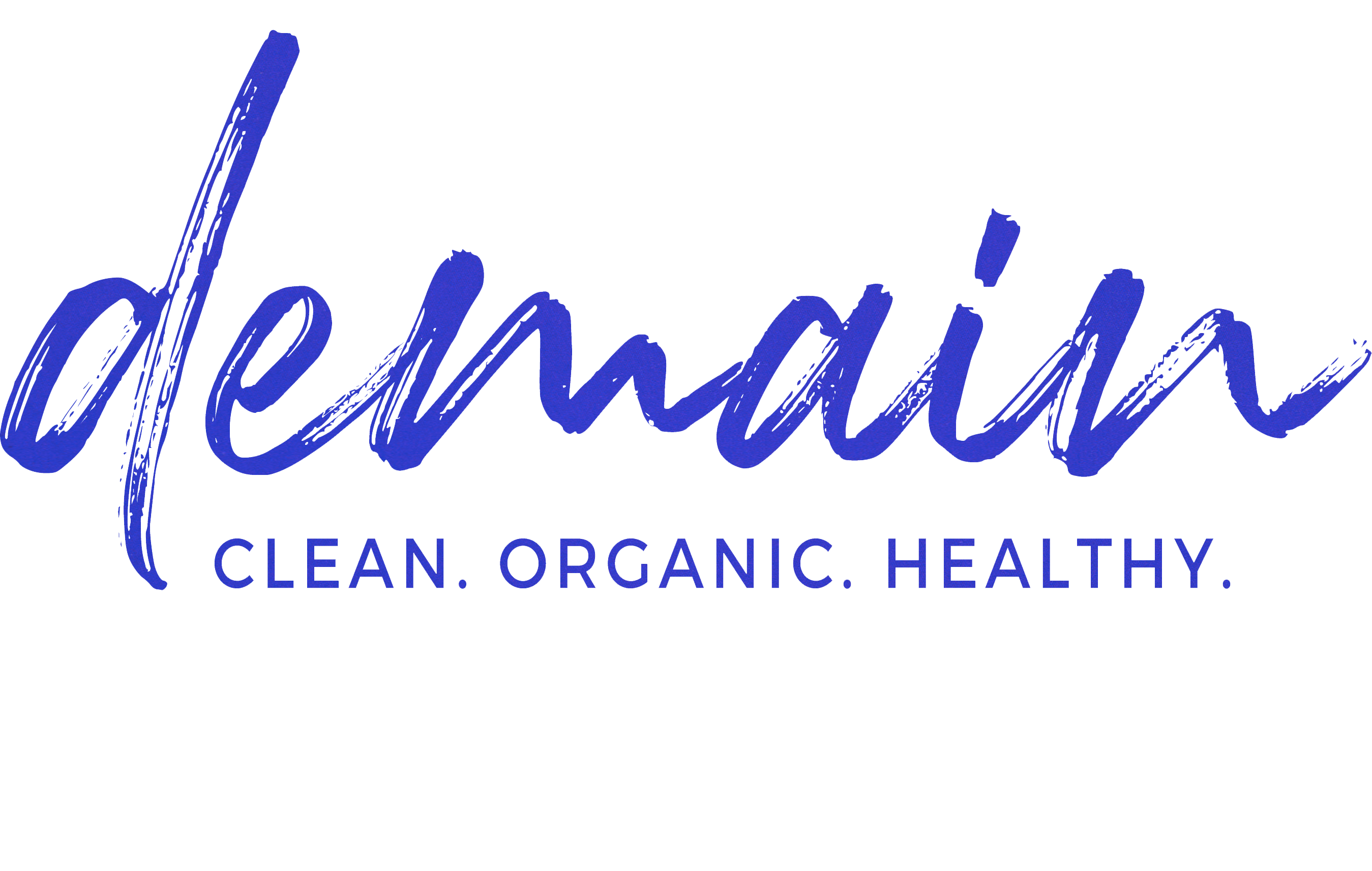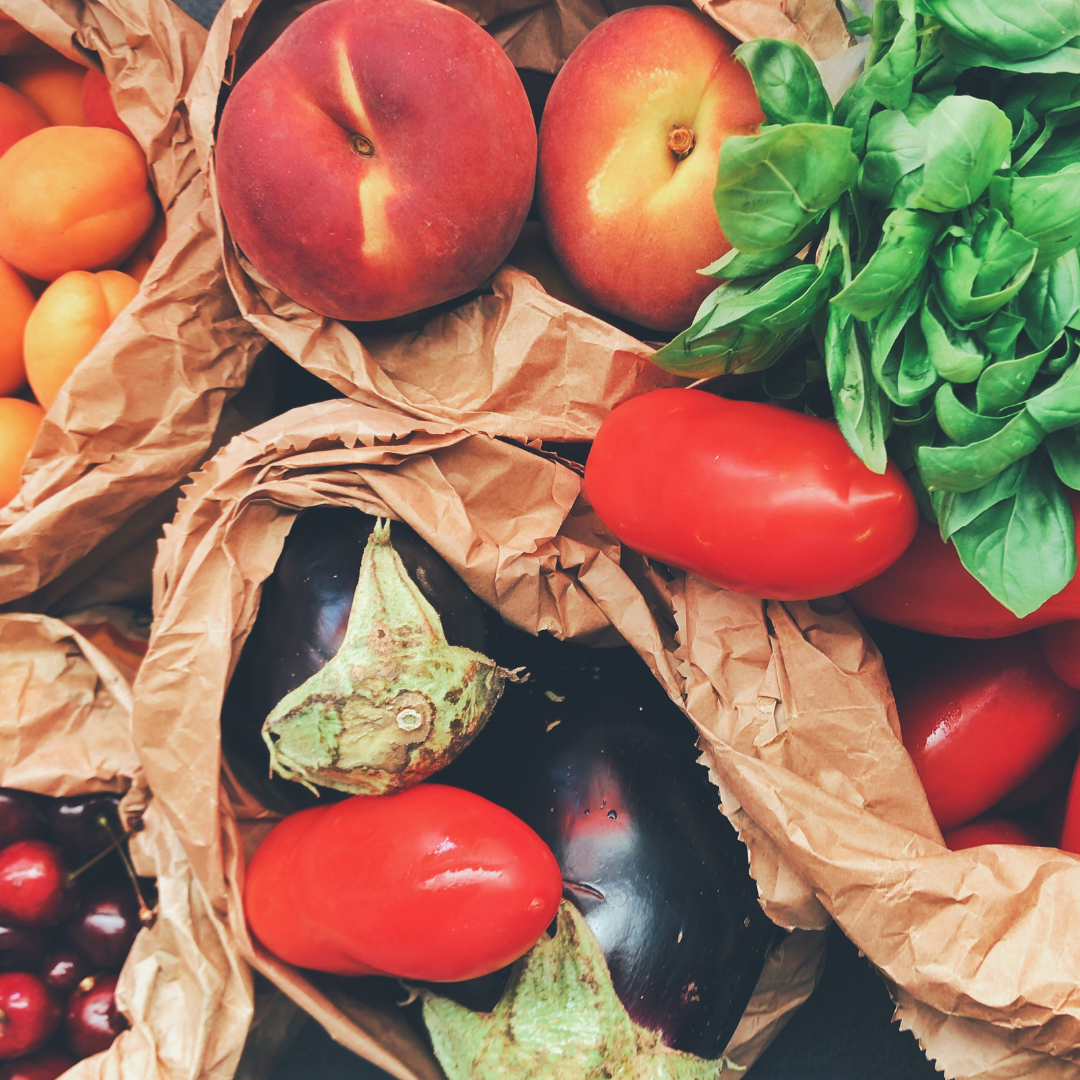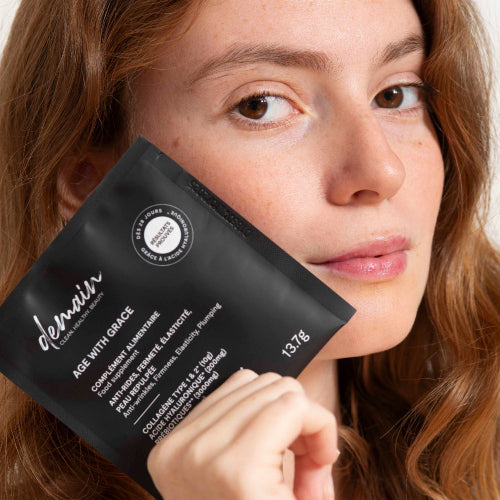Eating a balanced and healthy diet is key to glowing skin. By choosing nutrient-dense foods and avoiding excess salt, sugar, and fat, you contribute to the health of your skin. Eating plenty of fruits and vegetables, legumes, and omega-3-rich foods like oily fish can help maintain your skin's radiance. Finally, don't forget that hydration is also essential for your skin. So, are you ready to overhaul your diet for radiant skin?
The definition of a balanced diet
A balanced diet is defined as a diverse diet rich in essential nutrients. It involves the proportional consumption of several food groups:
- proteins (meat, fish, eggs, legumes),
- carbohydrates (cereal products, potatoes),
- lipids (vegetable oils, oily fish),
- vitamins and minerals (fruits and vegetables),
- fiber (vegetables, nuts, wholemeal bread).
Water consumption, essential for the body's proper functioning, is also an integral part of this diet. Salt, sugar, and saturated fat intake should be limited. A balanced diet meets individual nutritional needs, adapts to lifestyles, and adheres to dietary recommendations.
The principles of healthy eating
The principles of healthy eating are based on several key aspects. First, it's about respecting dietary variety . This means consuming a wide variety of foods to obtain a range of nutrients. This includes:
- Fruits and vegetables for their vitamin, mineral and fiber content.
- Whole grains for their richness in fiber and slow carbohydrates.
- Legumes such as lentils or chickpeas for their vegetable protein content.
- Sources of animal or vegetable proteins for their supply of essential amino acids.
Next, it's essential to limit ultra-processed foods , which are often high in sugars, saturated fats, and salt. Olive oil and added salt should be used in moderation.
Finally, reduce the consumption of sugary drinks in favor of water, which should be the main drink throughout the day. Hydration plays an essential role in maintaining skin health.
Implementing these principles can help you achieve glowing skin while following ANSES recommendations for a balanced diet .
The Importance of Food Safety
Food safety is a key pillar in ensuring radiant skin. It prevents the presence of harmful substances that can negatively impact skin health. Indeed, pathogens such as Salmonella , Campylobacter , and enterohemorrhagic Escherichia coli, often present in poorly preserved or undercooked foods, can cause skin problems.
Safe foods, on the other hand, are rich in essential nutrients that nourish the skin, making it brighter, firmer and visibly healthier.
Organizations like the French Food Safety Agency (AFSSA) play a crucial role in ensuring the safety of our food. They carry out rigorous checks to ensure that the food we eat is safe.
Food safety is therefore a significant aspect in achieving radiant skin.
The Health Agency's recommendations for safe food
The Health Agency recommends a series of good practices for safe food.
- One of the main tips is to favor a variety of foods to cover all nutritional needs. This means consuming foods from all food groups in balanced proportions.
- Next, the importance of water consumption is highlighted. Water is essential for the proper functioning of the body and for hydrating the skin.
- The Agency also emphasizes moderate consumption of salt, sugar and saturated fats to prevent certain diseases.
- Finally, she emphasizes the need to limit ultra-processed foods which are often high in sugars, saturated fats and salt.
The Agency also recommends adopting behaviors that promote food safety, such as purchasing in bulk under conditions that guarantee product safety.
How to eat a balanced diet every day?
Choosing foods for a balanced meal
Food choices are crucial for creating a balanced meal. It's recommended to choose nutrient-rich, unprocessed foods. Vegetables and fruits, sources of vitamins and fiber, are essential. Whole grains provide complex carbohydrates for energy. Protein sources, whether animal (meat, fish, eggs) or plant-based (legumes, tofu, quinoa), are also essential. Lipids shouldn't be overlooked, but healthy sources should be favored, such as vegetable oils, nuts (walnuts, almonds), or oily fish. Varying your food choices helps cover all nutritional needs and avoid deficiencies.
What diet to lose weight?
What diet to lose belly fat?
Losing weight healthily requires a holistic approach. Regular physical activity is essential. It not only promotes weight loss but also improves overall health. Here are some tips for diet:
- Vary your meals : each food has its own specific characteristics and provides different nutrients. A varied diet helps cover all nutritional needs.
- Choose whole foods : they are rich in fiber, promote satiety and help control weight.
- Focus on lean proteins : they provide essential amino acids without too much fat.
- Limit processed foods : These are often high in sugars, saturated fats, and salt. Excessive consumption can contribute to weight gain.
- Stay hydrated : Water provides no calories and contributes to overall good health.
It's also essential to respect your eating rhythm and listen to your hunger and satiety signals. Sustainable weight loss requires a long-term change in eating habits.
Managing snacking and sugar cravings
To effectively manage snacking and sugar cravings, several strategies can be adopted.
First, it's essential to understand the mechanisms behind sugar cravings and snacking. These cravings are often a sign of an imbalance in your diet or areas where you need to improve your stress and emotional management.
Next, adopting a balanced and regular diet is an effective solution. Ensuring you consume protein, fiber, and healthy fats during your three main meals of the day promotes satiety and reduces the desire to eat between meals.
Additionally, planning a healthy late-afternoon snack can help prevent you from feeling overly hungry in the evening. This snack could include foods rich in fiber and protein, such as plain yogurt and a handful of nuts.
Finally, there are healthy alternatives to satisfy sweet cravings. Fresh fruit, nuts, or even dark chocolate squares can be good choices.
The health benefits of a good diet
The impact of diet on general health
Diet plays a crucial role in our overall health . The food choices we make every day have a direct impact on our physical and mental well-being. A balanced and varied diet provides our bodies with all the essential nutrients they need to function properly.
Furthermore, poor diet can lead to health risks. For example, a diet high in sugars, saturated fats, and salt can increase the risk of developing chronic diseases such as type 2 diabetes, cardiovascular disease, and certain types of cancer.
Adopting a healthy diet is therefore crucial to maintain your health and prevent the onset of various diseases.
Disease prevention through healthy eating
Healthy eating is one of the key ways to prevent various diseases. Several studies have confirmed the significant impact of a balanced diet on reducing the risk of chronic diseases such as obesity, type 2 diabetes, cardiovascular disease, and certain cancers.
It is recommended to favor the consumption of fruits and vegetables, rich in vitamins, minerals, and fiber, and to limit the consumption of sugars, saturated fats, and salt. Healthy diets also emphasize the importance of protein for satiety, favoring a variety of sources (animal and plant).
Anti-inflammatory diets, which emphasize antioxidant-rich foods such as plants, beverages like tea and coffee, and nuts, are also promoted for their ability to prevent certain diseases.
It is also essential not to neglect the importance of hydration and regular physical activity, which are two complementary elements to a healthy diet for good health.
In short, a healthy and balanced diet is an effective prevention strategy against many diseases, contributing both to the protection of our health and to the improvement of our general well-being.
The influence of diet on mood and mental well-being
Our diet has a significant impact on our mood and mental well-being. Nutrition research has shown that certain nutrients play a crucial role in regulating our mood. For example, vitamin D, found in certain fish and dairy products, can improve our mood and overall well-being. Similarly, iron, found in red meat, lentils, and spinach, is essential for energy production in our brains, which can also help improve our mood.
Other studies have highlighted the link between diet, blood sugar, and mood. For example, low blood sugar can lead to fatigue and irritability. Conversely, a balanced, nutrient-rich diet can promote a better mood and optimal mental well-being.
There is also a field of research, nutritional psychiatry, that studies how foods can influence mood and mental health. This includes the impact of probiotics, omega-3 fatty acids, and antioxidant-rich foods on mental health and overall emotional well-being.
It is therefore crucial to take care of our diet and ensure that it is varied, nutritious and beneficial for our mental well-being.
The ideal diet: myth or reality?
Discovering the 4 types of foods to eat to lose weight
Now let's get down to business with a look at the four types of foods you should prioritize for healthy and effective weight loss. These food categories have been selected for their richness in essential nutrients and low calorie content.
First, vegetables , an unrivaled source of fiber, vitamins and minerals. Low in calories, they promote a lasting feeling of satiety.
Second, lean proteins (poultry, fish, tofu) which help build and maintain muscle mass while promoting feelings of satiety.
Then, whole grains (quinoa, brown rice, oats) are rich in fiber, they regulate digestion and stabilize blood sugar levels.
Finally, good fats, mainly from avocados, nuts, and seeds, are essential for heart health and brain function. They also help control hunger.
It is crucial to combine these foods with sufficient water consumption to aid digestion and waste elimination.
Food and digestion: understanding the links
Understanding the link between diet and digestion is essential for glowing skin. Optimal digestion allows for the efficient absorption of nutrients essential for skin health, such as vitamins A, E, and C. A diet rich in fiber, probiotics, and prebiotics promotes a balanced gut flora, essential for optimal nutrient absorption.
Certain plants rich in bitter substances, such as milk thistle or artichokes, are beneficial for the intestine. They stimulate the liver and bile, thus aiding the intestine in its digestive activity. Efficient digestion therefore allows for better nutrient absorption and promotes radiant skin.
There is also a strong link between dysbiosis, intestinal permeability, and inflammatory skin diseases. A healthy microbiota is therefore essential for optimal skin health.
It's worth noting that stress management also impacts digestion and nutrient absorption. Stress management techniques, such as meditation and deep breathing exercises, can optimize digestion and promote glowing skin.
Foods to avoid when you have diarrhea
During a bout of diarrhea, certain foods should be avoided because they can worsen symptoms. These include fatty foods like fried foods and fatty meats, which are difficult to digest and can irritate the digestive system. Spicy foods can also cause irritation. Dairy products , with the exception of probiotic-enriched yogurts, are often poorly tolerated because they contain lactose, which can increase diarrhea. High-fiber foods like raw vegetables, unpeeled fruit, and whole grains can speed up intestinal transit and worsen diarrhea. It is therefore best to avoid them during this time.
Foods that promote good digestion
To promote good digestion, incorporating certain types of foods into your eating routine is recommended.
- Foods rich in fiber such as green vegetables, fruits, whole grains and legumes promote intestinal transit and prevent constipation.
- Probiotics , found in products like yogurt and kefir, help maintain healthy intestinal flora, essential for optimal digestion. For this, there's nothing better than Demain® food supplements ! 10 billion probiotics in a single capsule!
- Water-rich foods such as cucumber, watermelon, or melon help prevent dehydration, which can disrupt digestion.
- Finally, foods containing ginger or peppermint can help relieve nausea and indigestion.
It's important to note that every individual is unique, and what works for one person may not work for another. Therefore, it's essential to pay attention to your own body and adapt your diet accordingly.
The importance of hydration in digestion
Hydration is a crucial factor in digestion. Water plays a vital role in the food breakdown process, allowing for optimal nutrient absorption and ensuring the proper functioning of the digestive system. Adequate hydration helps regulate intestinal transit, facilitating the evacuation of waste and preventing constipation. Water is therefore an essential element of the digestive process, actively participating in intestinal health.
The benefits of hydration aren't limited to the digestive system. Water is also essential for maintaining healthy saliva levels, facilitating chewing and the first stage of digestion. Adequate hydration helps maintain proper blood circulation, ensuring the transport of oxygen and nutrients to organs, including the skin.
It is recommended to drink at least 1.5L of water per day to ensure adequate hydration. However, this amount can vary depending on individual needs, physical activity, and climate. Pure water is recommended, but other sources of hydration can be considered, such as herbal teas, broths, or water-rich fruits and vegetables.
In short, adequate hydration is a key factor for optimal digestion and glowing skin.
Nutritional tips for losing belly fat
Foods to favor for a slim waistline
When it comes to slimming down, some foods are more recommended than others. Lean proteins like chicken, turkey, or low-fat red meat are a good choice. They help maintain satiety and promote fat burning.
- Fruits and vegetables should also be favored, especially those rich in fiber which promote the feeling of satiety and help regulate intestinal transit.
- Whole grains are another great option. They're more nutritious and satisfying than their refined counterparts.
- Foods rich in monounsaturated fats such as avocado, nuts, and olives can help reduce belly fat.
- Finally, let's not forget the importance of hydration . Drinking enough water throughout the day can help flush out toxins and reduce water retention, which can lead to belly bloating.
These foods, when eaten as part of a balanced diet, can help you lose belly fat and maintain a slim waistline.
Mistakes to avoid when losing belly fat
When trying to lose weight, there are some common mistakes that can slow your progress and harm your health. Avoiding these mistakes is essential to achieving your goals without compromising your well-being.
- Neglecting hydration : Water plays an essential role in the proper functioning of the body and contributes to the feeling of fullness. Not drinking enough can slow down metabolism and promote fat storage.
- Eating too quickly : Taking the time to eat allows you to feel fuller and avoid overeating.
- Ban fats : Not all fats should be avoided. Unsaturated fats, found in oily fish, nuts, and olive oil, are beneficial for your health.
- Neglecting fiber : Foods rich in fiber, such as fruits, vegetables, and whole grains, promote satiety and help regulate bowel movements.
- Skip the exercise : Diet alone isn't enough to lose belly fat. Regular physical activity is essential for burning fat and toning your core.
Exercises complement a good diet
To complement a healthy diet in order to lose belly fat, certain exercises are particularly effective.
- Cardio : It helps burn calories and lose weight, which helps reduce abdominal fat. Running, cycling, or swimming are examples of cardiovascular exercises.
- Muscle strengthening : In particular, exercises targeting the abdominal muscles such as core exercises or crunches can help tone the stomach and improve posture.
- Daily physical activity : Simple activities like walking, climbing stairs, or cleaning can help burn calories and lose belly fat.
It is recommended to practice these exercises regularly, combining cardio, muscle strengthening and daily physical activity for optimal results.
Overview of human nutrition: diversity and specificities
The place of food in our society
Food occupies a central place in our society; it reflects our culture, our history, and our way of life. It is at the heart of several issues, whether health, environmental, or social.
Food, a social and cultural marker
Food is a true social marker. It reflects our belonging to a social class, a region, or a culture. Eating habits are often passed down from generation to generation; they reflect our traditions and cultural heritage.
Food, a public health issue
Diet is also a major public health issue. It is at the heart of many health problems, such as obesity, diabetes, cardiovascular disease, and certain cancers. A healthy, balanced diet is essential for preventing these diseases and ensuring good health.
Food, a lever for the environment
Finally, food is a lever for the environment. It is linked to several environmental issues, such as global warming, deforestation, soil and water pollution, and biodiversity loss. A change in our eating habits, towards more responsible and sustainable consumption, is necessary to preserve our planet.
The impact of food on culture
Food is closely linked to culture, shaping and being shaped by a society's traditions, values, and practices. Dietary habits can serve to reinforce cultural identity, with specific dishes and ingredients associated with certain regions or groups. For example, the Mediterranean diet is often associated with countries like Italy and Greece, while sushi is emblematic of Japanese culture.
Food as an expression of culture
- Celebrations and rituals: Food plays a central role in many cultural celebrations and rituals, serving to mark special occasions or honor age-old traditions.
- Culinary Arts: Cooking is often considered an art form, with chefs using ingredients to create visually impressive and delicious dishes.
- Culinary Heritage: Certain recipes or cooking techniques are passed down from generation to generation, preserving a culture's culinary heritage.
However, diet and culture also have a complex relationship, with factors such as globalization and social change influencing eating habits. For example, the adoption of Western diets in many countries has led to an increase in the consumption of processed and fast foods, which has implications for public health and the environment. Therefore, understanding the impact of diet on culture can help inform strategies to promote healthier and more sustainable eating habits.
The evolution of food over time
The evolution of human nutrition is marked by profound changes linked to the development of societies. From the Paleolithic diet, based on hunting and gathering, we moved to a more diversified diet with the advent of agriculture.
Over the centuries, humans have adapted their diets to the technologies and products available. Thus, food has evolved in parallel with human evolution and technological progress.
In the 20th century, the industrialization of agriculture and the emergence of new methods of preservation significantly changed our eating habits. New foods were introduced, while others virtually disappeared from our plates.
Today, our eating habits are influenced by various factors, including the demands of our modern lifestyles, health concerns, environmental concerns, and the quest for pleasure.
The future of food: issues and challenges
The future of food is marked by major challenges, both from an environmental and societal perspective. To meet the growing global population, agriculture must diversify and innovate. Food security , food self-sufficiency , and sustainable development are central concerns.
- One of the major challenges is feeding a constantly growing global population in a healthy and sustainable way . This requires diversifying crop and livestock systems while limiting environmental impact.
- Innovation is also essential to meet the new expectations of consumers, who aspire to more traceable and environmentally friendly food.
- Finally, the food of tomorrow must be inclusive and accessible to all , to guarantee the right to quality food for all.











